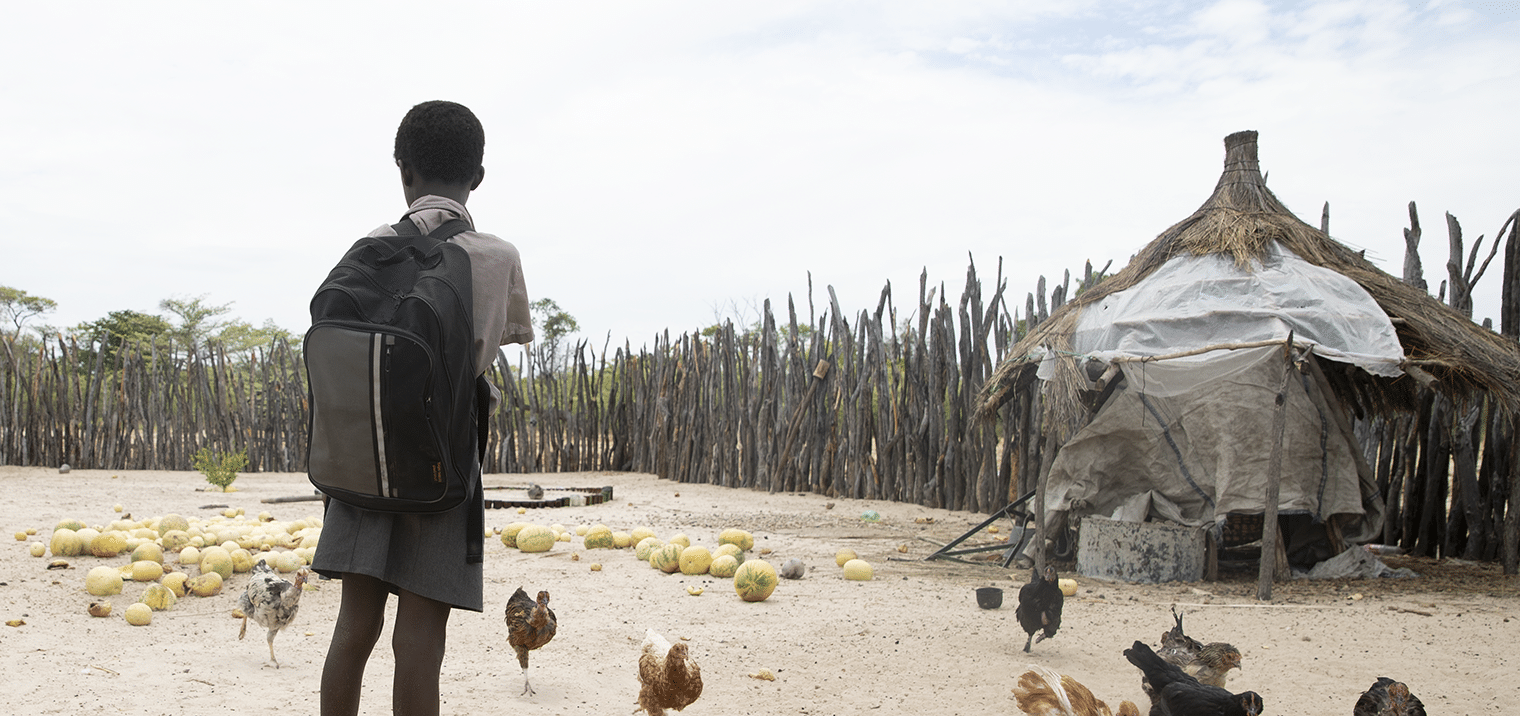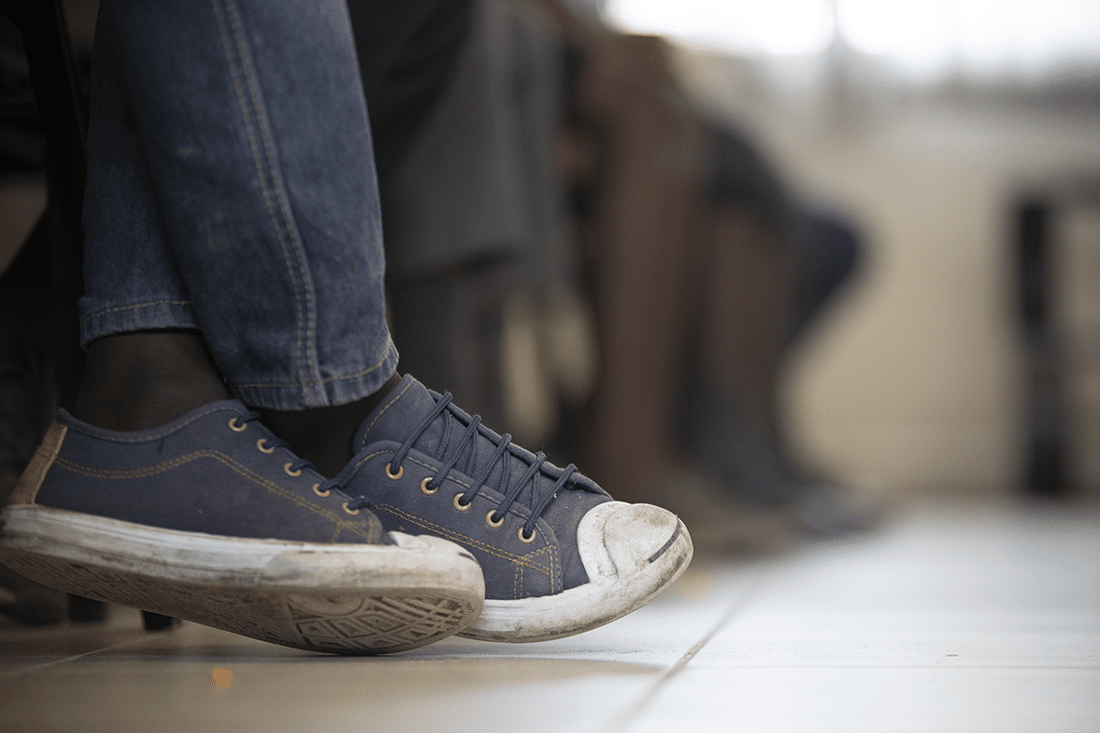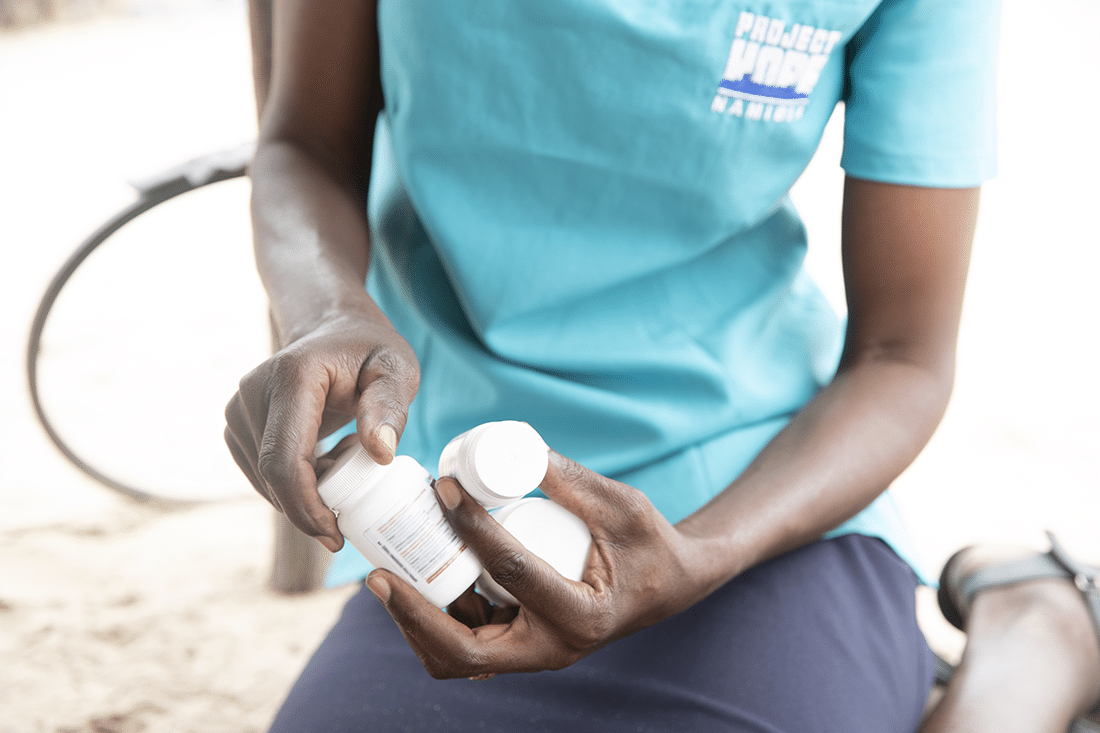
Don’t Wake the Wolf: Pediatric HIV Care in Namibia
“If you don’t take your medicine on time, you will wake up the wolf.”
“If you don’t take your medicine on time, you will wake up the wolf.”
This is the most important lesson for a group of 96 HIV-positive teens ranging in age from 9 to 19. Project HOPE has established clubs for this team to improve HIV care and treatment. The program – Namibia Adherence and Retention Project – is funded by PEPFAR (the President’s Emergency Plan for AIDS Relief) through the U.S. Agency for International Development.
Many of the teens don’t fully understand why they must take their antiretroviral treatment (ART) prior to club membership, so “disclosure” is an important component of the club. Because most of the teens have been HIV-positive since birth, taking the medication has become routine in their lives. But their parents often don’t explain why the treatment is lifesaving.
According to the club’s leaders, this lack of communication may be due to multiple reasons: feelings of guilt that parents transmitted the virus to their children; a desire to protect their children from the stigma that the diagnosis brings; or just basic inadequacy of communication skills.
Whatever the reason, it is the responsibility of the teen club leaders to convey why it is absolutely vital that the teens strictly adhere to the ART regimen.



No one wants to wake up the wolf.
The virus – the “wolf” – was roused in 12-year-old Sarah who lives with her mother, Minette, and step-father, Vilho, in northern Namibia. A quiet, studious girl, Sarah had just begun to show subtle signs of deterioration in her health at the same time Vilho began finding pills scattered throughout the family’s mahangu (millet) fields.
Vilho asked Project HOPE’s community health worker, Aina, to intervene. Through gentle questioning, Aina learned that Sarah found her own pills to be bitter and had begun burying her medication and sneaking her parents’ medications instead because those were “tastier.”
Aina counseled the entire family. She helped Sarah understand the importance of taking her own medication – the exact amount at the exact times prescribed. She advised Sarah’s parents to keep their own ART medication out of Sarah’s reach. She also referred the family to a health facility that eventually changed Sarah’s medication slightly so that it was no longer so bitter.



Sarah’s health prognosis is now good – as long as she continues to take her own medication, in the correct dosage and on time.
Her future is bright. She does well in school – math and English are her favorite subjects and she wants to be a teacher when she grows up. She continues to participate in the teen club support group that helps her learn that she is not alone facing her diagnosis and issues relating to her HIV status.
Sarah’s mother is optimistic. “We trust that she will study hard and be successful in life so that she can eventually assist us at home,” says Minette.
“Sarah now is a responsible girl,” says her stepfather Vilho. “Even if we’re not at home, she knows how to take her medication without our supervision. She’s doing very well in school. But I also know that she needs continued help from Project HOPE. She is still young.”
Sarah now understands firsthand how absolutely critical ART adherence is to her success in life. She is in charge of her own destiny.
And she knows the most important part of her journey: Don’t wake up the wolf.

Project HOPE’s Namibia HIV Adherence & Retention Project
Although incidence and mortality has been declining in recent years, HIV/AIDS remains one of Namibia’s biggest health challenges — it is the leading cause of death in this sub-Saharan African country. Historically, response to the HIV/AIDS epidemic has mainly focused on prevention, behavior change and health interventions. But research has indicated that Namibia has a particularly low adherence and retention rate (66%). This means that many Namibians living with HIV are not receiving the treatment they need to reduce the viral load in their blood needed to live longer, healthier lives.
Project HOPE’s Namibia field office has implemented the USAID-funded Namibia HIV Adherence and Retention Project since 2013 with local partners. We are working to reduce the impact, transmission and spread of HIV through a community-based response, providing care and support for vulnerable and hard-to-reach populations. In coordination with the Ministry of Health and Social Services, we are putting in place evidence-based and sustainable activities to address the unmet need for antiretroviral therapy (ART), including HIV prevention/testing and services and linkage to care; capacity building of staff; and regular supportive supervisory visits. The project is also working to improve ART retention and adherence rates among persons living with HIV to achieve viral load suppression and mitigate the impacts of HIV among orphans and vulnerable children.
Between January and March 2019:
- 11,587 orphans and vulnerable children received household services.
- 1,593 children living with HIV have begun receiving ART.
- 694 new cases of children living with HIV were enrolled for household services.
- 21 teen clubs have been established across all regions to teach a total of 323 teen members economic strengthening skills.
Learn more about our work in HIV/AIDS
Learn more about our work in Namibia

How you can help
Make a lifesaving gift to support our work now and for the future at projecthope.org/donate.
Are you a health-care or other professional who would like to learn more about volunteering abroad with Project HOPE? Learn more about our volunteer program and join our volunteer roster.
Stay up-to-date on this story and our lifesaving work around the world by following us on Facebook, Instagram, LinkedIn and Twitter, and help spread the word by sharing stories that move and inspire you.